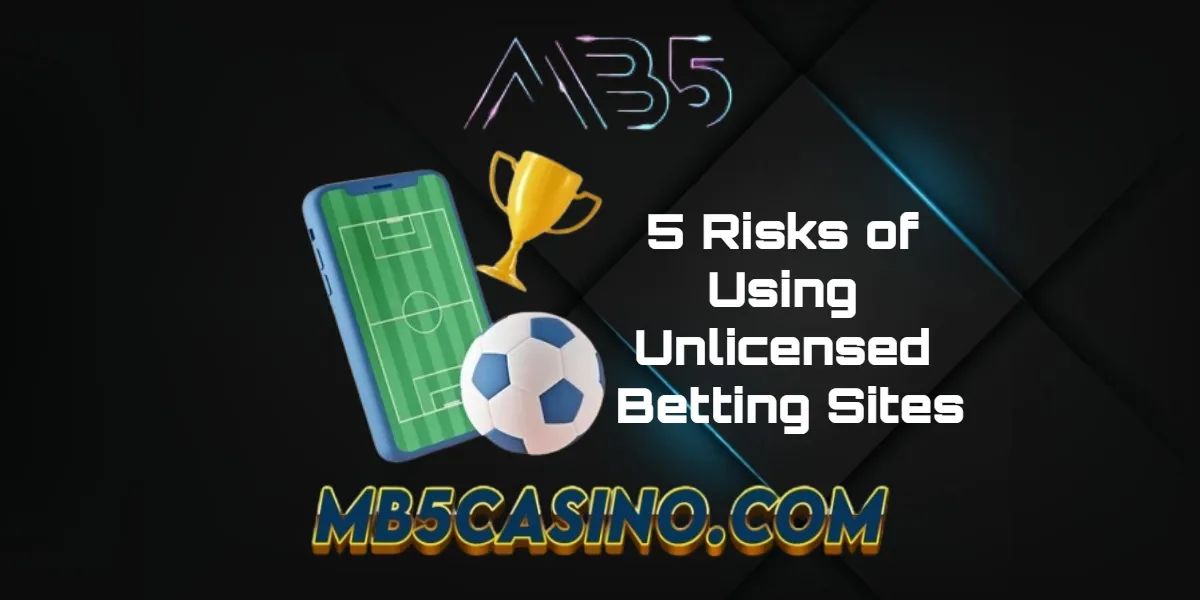The single greatest threat to a bettor on an unlicensed site is the complete lack of financial recourse. When you deposit money onto a platform that isn't overseen by a reputable national authority, you are effectively trusting a private, foreign entity with your funds. Licensed operators are legally required to maintain segregated accounts, separating customer funds from operating capital to ensure protection during financial difficulty, but unlicensed sites ignore this crucial safeguard. The most common financial risk is the refusal to pay out large winnings where the operator invents technical violations of their vague terms to void the bet. Less scrupulous sites may engage in slow-rolling, drastically slowing down the withdrawal process, hoping the user will cancel the request and gamble the money back. In the worst cases, the site can simply disappear overnight, resulting in the immediate and permanent loss of the entire user bankroll with zero chance of recovery. Furthermore, as many jurisdictions block transactions to illegal sites, users are often forced to use non-reversible payment methods like cryptocurrency, removing the possibility of a chargeback and leaving them financially vulnerable.
Data Privacy and Identity Theft
The security standards on an unlicensed betting site are often dangerously lax compared to those required by regulated financial institutions. When a bettor registers and deposits funds, they are handing over sensitive Know Your Customer (KYC) data, including full legal names, addresses, and copies of government-issued IDs, which is highly sought after by cybercriminals. Unlicensed operators have no external security audit requirements and often use substandard, outdated encryption technology, leaving their entire user database susceptible to data breaches and hacking. If a site is breached, the user's personal and financial information can be sold on the dark web for use in identity theft, financial fraud, or phishing scams. The copies of identification documents are particularly valuable targets, and using an unlicensed site means voluntarily submitting this private information to a party with zero accountability for its safeguarding.
Legal and Regulatory Penalties
For users in jurisdictions where sports betting is illegal, such as Malaysia under the Betting Act 1953, using an unlicensed offshore site carries a significant legal risk. While enforcement efforts typically focus on operators and large syndicates, the act of participation remains a breach of local law. By transferring funds to an illegal site and placing a bet, the user is technically engaging in an illegal activity and could face penalties if their transaction data is accessed by local law enforcement. Furthermore, authorities often monitor large or frequent financial transactions routed through unconventional channels known to facilitate illegal gambling, leading to potential scrutiny and costly investigations. From a legal standpoint, the bettor is completely exposed and cannot seek protection or enforce their rights through domestic courts if the site acts unfairly, effectively abandoning all consumer rights.
What are the risks of using an unlicensed or untrusted betting site?
Since unlicensed sites do not submit their software or operations to regulatory scrutiny, they have the capability and motivation to manipulate the sportsbook malaysia environment to their advantage. Smaller or shadier operators can engage in malicious practices, particularly in live betting, by deliberately delaying the suspension of odds after a critical event, allowing them to accept bets and then void the winning wagers retroactively on technical grounds. On disputes, the site's decision is final, and they may settle a bet according to an incorrect or disputed result, as the bettor has no external arbitrator to force a fair review. Additionally, these sites often use proprietary casino and RNG (Random Number Generator) software that has not been independently audited, raising the severe risk that their casino games are rigged to have an even lower payout rate than industry standards. Many unlicensed sites also bury malicious withdrawal clauses deep within their terms, including excessively high turnover requirements or severe restrictions on maximum daily withdrawals that force users to keep large amounts of money on the platform.
Licensed and regulated operators are legally mandated to promote responsible gambling and must offer tools like self-exclusion and deposit limits to protect vulnerable individuals. Unlicensed sites actively exploit the lack of this requirement, viewing responsible gaming tools as detrimental to their revenue. They rarely offer effective self-exclusion options and have no obligation to honor them, often allowing the user to simply reopen the account or register a new one. Crucially, they do not provide easily set and enforced deposit and loss limits, facilitating rapid, large-scale financial harm for problem gamblers. Unlicensed sites also use aggressive, predatory marketing tactics, often targeting individuals who show signs of excessive gambling with large, misleading bonuses that are near-impossible to clear. They actively profit from and contribute to problem gambling, with no mechanism in place to help the user regain control, highlighting a severe ethical failure compared to regulated platforms.








































